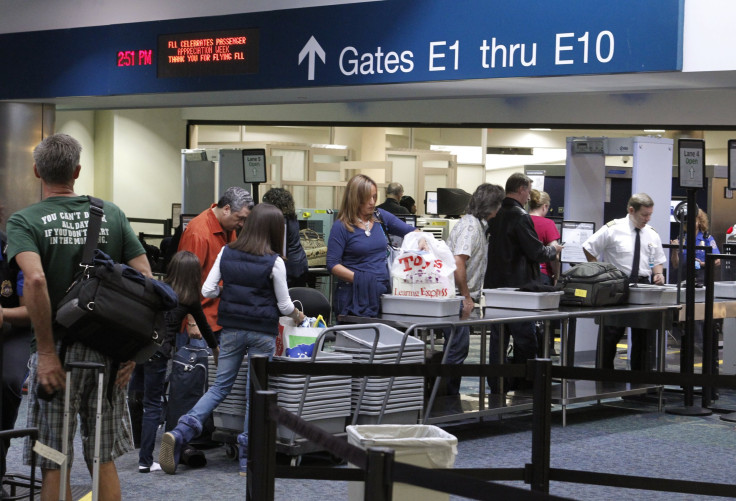TSA Screening Procedures: Airport Security Slammed As 'Airline Security Caste System' By ACLU

The American Civil Liberties Union says TSA screening policies have set up an “airline security caste system” where government employees and politicians enjoy expedited screenings at airports while the general public is subject to scrutiny even when passengers are not on the so-called no-fly list. The criticism this week came after a government report released earlier this month that showed the Transportation Security Administration’s Secure Flight Program has no system to evaluate what is causing screening errors and doesn’t have “timely and reliable information” on all mistakes made under the program.
Expedited screenings are given to government employees, members of Congress and the military, federal judges and some government agencies, such as the Department of Defense. The public can get the same treatment, but only if a passenger agrees to a background check and to submit fingerprints to the TSA, among other requirements.
“Instead of subjecting all travelers to the same procedures designed to detect threats to aviation, the government is essentially telling the American public that if we want the same privileges that the government has awarded itself, we'll have to convince the government that we won't commit dangerous acts in the future,” the ACLU said. “That means turning over more and more information about ourselves: about who we are, what we do, and with whom we associate. By default, the TSA's system treats any reluctance to fork over that information as somehow suspicious, and it reinforces the emerging airline security caste system.”
The ACLU also took issue with TSA blacklists used to screen for “unknown threats,” saying the procedure “exacerbates the already unacceptable risk that watchlists will be used for racial and religious profiling.”
The report by the Government Accountability Office found that TSA security screening could be strengthened if the agency evaluated “the root causes of screening errors, and then implementing corrective measures, in accordance with federal internal control standards.”
The GAO recommended the TSA “develop a process to regularly evaluate the root causes of screening errors at security checkpoints and implement measures to address these causes. GAO also recommends that TSA develop measures to address all aspects of performance related to program goals and develop a mechanism to systematically document the number and causes of Secure Flight system matching errors.”
© Copyright IBTimes 2024. All rights reserved.












